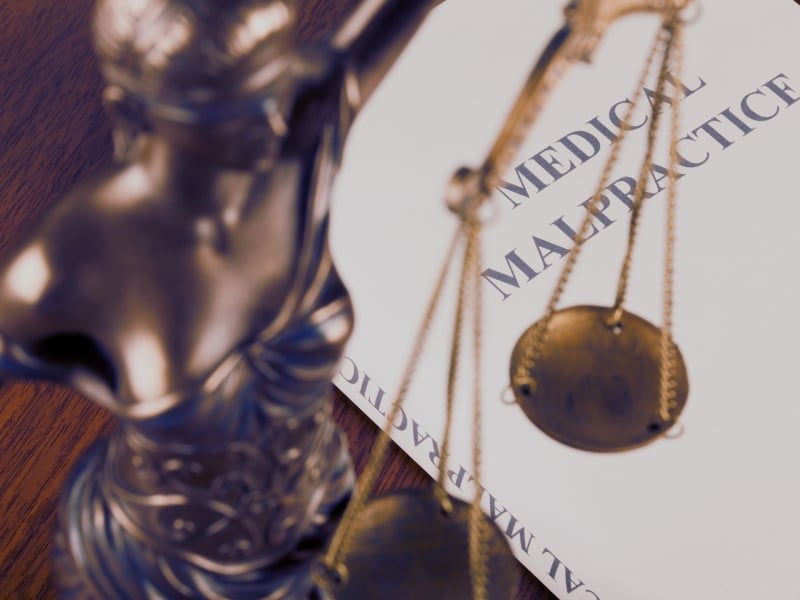
Knowing what questions to ask a medical malpractice attorney is instrumental in choosing the right attorney for your situation. Start your initial conversation with your potential attorney by asking how long the attorney has practiced medical malpractice law. Many years of practice in the relevant area are crucial, but you need someone who can win your case. So, find out your prospective attorney’s success rate in handling medical malpractice cases.
Ask upfront about how much you will pay for legal services and what other potential case expenses you will incur. You should know the total charges you might incur by the end of the initial consultation with your potential attorney. Be sure to ask about your case timeline, as well. Knowing the expected timelines for your case prepares you mentally and eliminates unnecessary worries.
What Is Medical Malpractice?
Medical malpractice happens when a medical professional’s failure to exercise reasonable care injures a patient. The medical professional simply departs from the standard of care usually expected under similar conditions. Medical malpractice law enables patients to pursue compensation for any injuries and losses arising from poor-quality medical treatment or care.
Medical Malpractice Versus Medical Negligence
If you were injured after obtaining medical treatment in Illinois, you might ask, “how does medical malpractice differ from negligence?” The answer to this question depends on the events preceding your injury and the intent of the medical professional involved.
Medical negligence covers situations where a medical professional accidentally harms a patient through a decision, action, or inaction. Medical malpractice covers scenarios where a medical professional fails to follow relevant guidelines or protocols and injures a patient as a result of that failure.
An example of medical negligence is when a surgeon injures you by accidentally puncturing a blood vessel during surgery. An example of medical malpractice is when a surgeon harms you by performing surgery without ordering more diagnostic tests. A medical malpractice attorney can help you determine if your case is subject to medical negligence or medical malpractice, or both.
What Questions to Ask a Medical Malpractice Attorney at Your Consultation
How Long Have You Handled Medical Malpractice Cases?
The more an attorney works on cases, the more skills the attorney gains. So, the years an attorney has handled medical malpractice cases should be a key consideration during the hiring process.
Don’t leave the initial session with your would-be attorney without asking about the attorney’s success rates. The attorney should cite successful cases that are similar to yours. Keep on searching if you are unsatisfied with the attorney’s success rates.
Will You Represent My Case at Trial?
Most medical malpractice cases settle out of court. You cannot, however, rule out the possibility of your case heading to a trial. When this happens, you will need an attorney with proven trial experience to get a favorable result from the trial. Find out how often your potential attorney takes cases to trial.
Your attorney shouldn’t hesitate to proceed to trial if an insurance company refuses to give you a fair and reasonable settlement. Your attorney should be all-round. The attorney should be a consummate negotiator during the settlement process and a skilled litigator in the courtroom. Such a lawyer will make you more likely to win a medical malpractice case.
What Are My Chances of Winning the Case?
Knowing your odds of winning a medical malpractice case against a liable medical professional is crucial. It helps you get your expectations under control. It also allows you to start looking for alternatives for covering your medical bills and other losses if you are unlikely to win.
Your would-be attorney should be bold enough to tell you if you are likely to lose your case. A knowledgeable attorney can cite reasons your case might be unsuccessful, even if you have viable grounds for a medical malpractice suit. Failure to comply with a doctor’s instructions and lack of objective evidence can hurt your chances of winning a medical malpractice case.
Most medical malpractice attorneys take cases they are likely to win, as they mostly work on a contingency fee arrangement. This fee arrangement allows medical malpractice victims to receive legal services without paying upfront. They pay only after recovering compensation through a settlement negotiation or a court process.
What Is the Statute of Limitations for My Claim?
Court processes are time bound. Ask your attorney about the statute of limitations for your medical malpractice claim. In Illinois, you must file your medical malpractice claim within two years of when you noticed or should have noticed your medical malpractice injuries.
Be sure to maintain proper records outlining all your injuries soon after discovering you have suffered from medical malpractice. Safely keep any correspondence between you and your doctor or hospital.
Filing your claim past the deadline will lead to the dismissal of your claim unless an exception applies to your case. A medical malpractice attorney conversant with your state laws can explain the deadlines and exceptions (if any) applicable to your case.
How Much Will a Medical Malpractice Lawyer Cost?
Find out how much your case will cost from the onset. Also, ask about the payment timelines and arrangements. Obtaining this information during the initial consultation prevents disputes or disagreements regarding the payment from arising down the road.
As previously mentioned, most medical malpractice lawyers get paid after a successful financial recovery. In other words, the attorney’s fees and other case expenses get deducted from the compensation recovered on behalf of the client.
How Long Will My Case Take?
A medical malpractice case can resolve within a few months or linger in court for years. Your potential attorney should be capable of predicting the timeline for your case after examining its unique facts and circumstances.
Even if your case concludes and a favorable verdict is issued, the defendant still has the right to appeal. The appeal may set you back a couple of months. This may lead to your case dragging on in court.
Who Will Be the Actual Attorney Representing Me?
Sometimes, the attorney you are interviewing may not be the one who will work on your case. This is especially true when you interview an attorney from a large law firm. Be sure to find out who will be working on your case. You can then set up an appointment with that lawyer to determine if the lawyer has the required skills to handle your case.
What Will Be the Mode of Communication?
Different attorneys prefer different modes of communication. Some prefer calls, while others prefer using email. Feel free to tell your potential attorney your preferred mode of communication.
Establishing clear communication channels eliminates issues that may affect the smooth progress of your case. It also helps you get in touch with your attorney whenever you have questions or concerns.
Can I Opt for an Out-of-Court Settlement?
This question is crucial if you have a strong medical malpractice claim. A lawyer is not strictly limited to the courtroom. The lawyer may reach a favorable agreement with the liable party or the liable party’s insurance. Settling a claim through negotiations saves you both time and money.
An out-of-court settlement only works when both parties are comfortable with the final agreement. You can move your case to court if the at-fault party’s insurer fails to give you a reasonable settlement offer.
Should You Hire a Medical Malpractice Attorney?
You have the right to recover monetary damages if you or a loved one suffers injuries during medical treatment due to a doctor’s negligence. The burden of proof in a medical malpractice case is higher than in a typical personal injury case. The support and representation of a medical malpractice attorney can help you meet the burden of proof and recover reasonable compensation.
A medical malpractice attorney assesses the facts of your case and conducts in-depth investigations to collect more evidence to support your case. The attorney may interview witnesses, medical professionals, and other parties with valuable information about your case.
Your attorney may hire a medical expert witness to strengthen your claim. A medical expert witness can explain how your doctor deviated from the acceptable quality of care.
Be sure to hire a medical malpractice attorney who perfectly fits your situation. You can achieve that by scheduling initial consultations with several attorneys and asking the right questions. Preparing thoroughly for these initial interviews increases your odds of hiring the right attorney.
The best way to prepare for your first interview with a medical malpractice attorney is to create a list of questions you will ask in advance. Also, obtain all the documents that might provide your potential attorney with as much information about your injuries as possible. These documents include correspondence between you and the liable doctor or hospital, medical bills, medical records, pictures of your injuries, and insurance claims.


